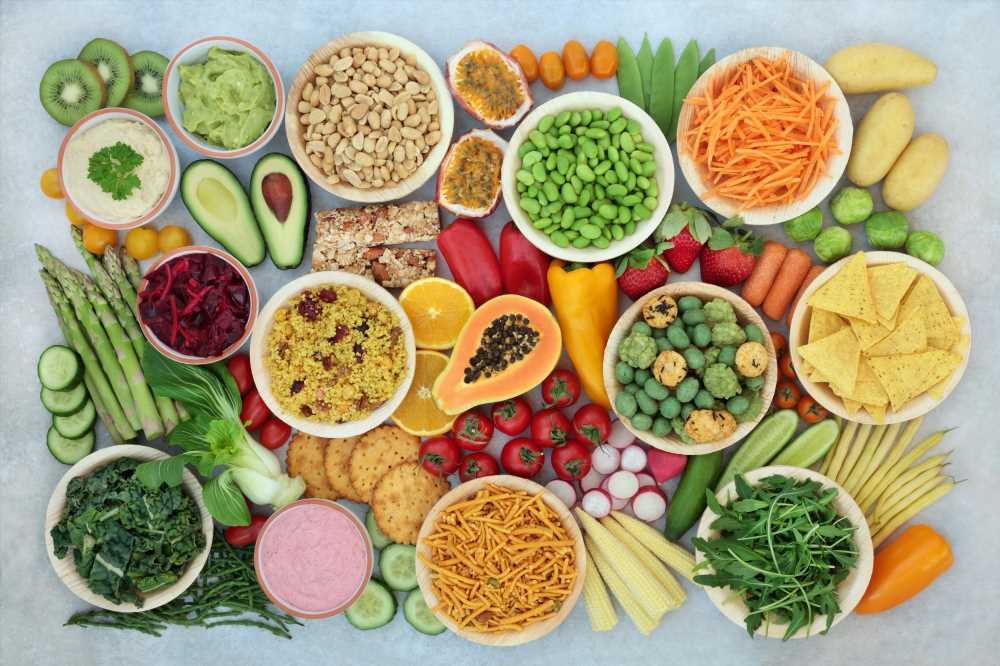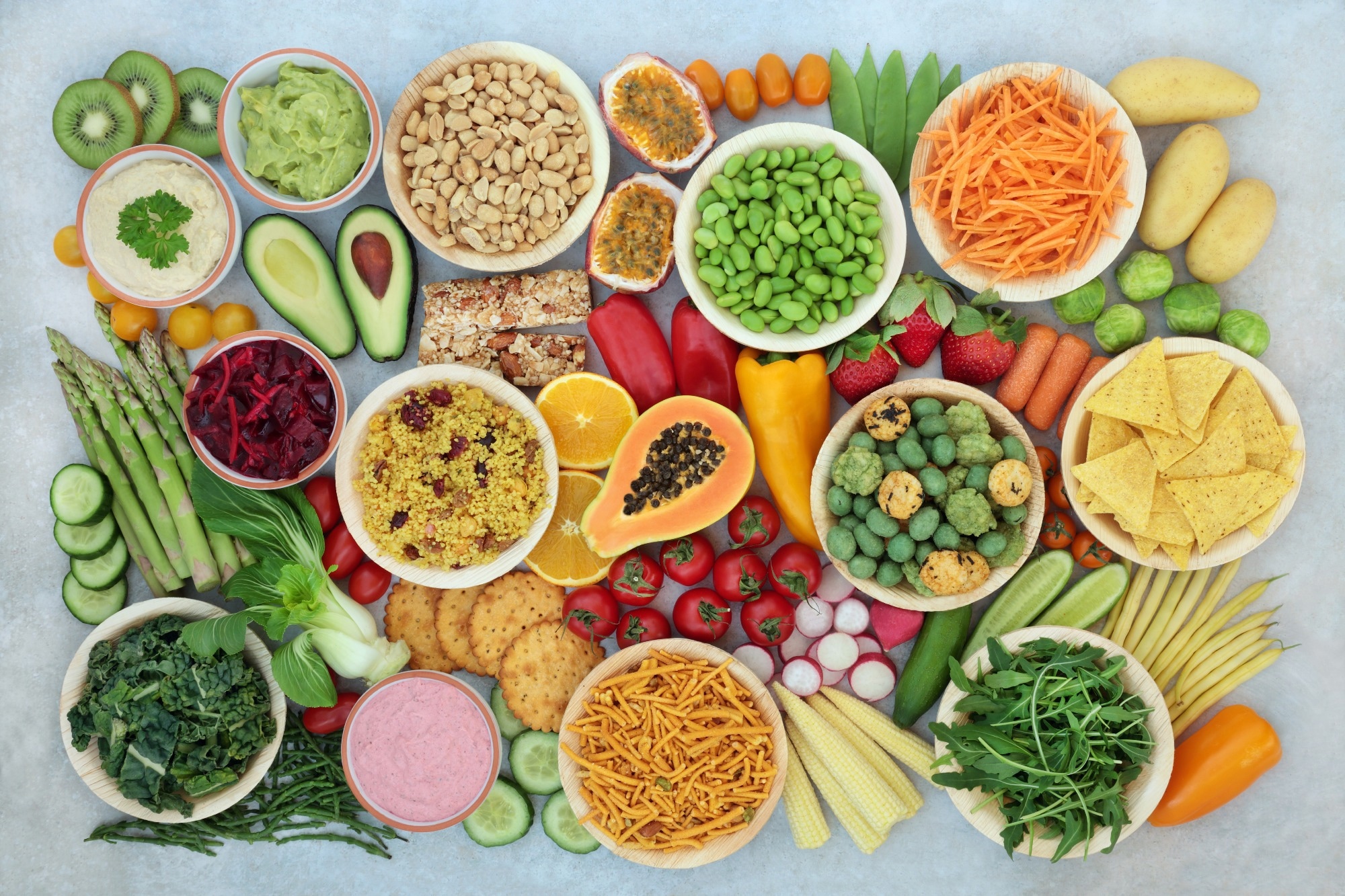
A high global mortality rate is associated with cardiovascular disease (CVD), particularly atherothrombotic ischaemic stroke and coronary heart disease. Therefore, it is necessary to reduce cardiovascular events by implementing cost-effective interventions. Several studies have indicated that reducing the low-density lipoprotein cholesterol (LDL-C) is crucial to preventing atherosclerotic CVD. Besides lipid-lowering drugs, consumption of phytosterols (PS) exhibited a lowering of cholesterol absorption.
 Study: Use of phytosterol-fortified foods to improve LDL cholesterol levels: a systematic review and meta-analysis. Image Credit: marilyn barbone / Shutterstock
Study: Use of phytosterol-fortified foods to improve LDL cholesterol levels: a systematic review and meta-analysis. Image Credit: marilyn barbone / Shutterstock
Background
Many lipid-lowering drugs are commercially available (e.g., statins, PCSK9 inhibitors, ezetimibe, resins, and bempedoic acid) and have proved to be effective in lowering LDL-C and preventing CVD events. In reality, several factors, such as side effects and personal reasons, pose barriers to optimally controlling dyslipidemia in many patients. In these cases, specific foods and nutraceuticals could be used to lower cholesterol levels.
In the last two decades, PS intake has increased considerably and led to a reduction in intestinal cholesterol absorption. This, in turn, has led to lowers LDL-C levels. A meta-analysis that included 84 clinical trials revealed a reduction in LDL-C with the consumption of around 2 grams of PS per day. Another study revealed that the LDL-cholesterol-lowering effect continues with approximately 3 grams per day of PS.
There is a need for more meta-analysis to understand the factors associated with the lipid-lowering effect of PS. This would help elucidate the variability in LDL-C reduction documented in previous studies. Some of the possible factors could be PS dosage, treatment duration, the type of food in which PS is incorporated, and the pattern of PS intake. It is also important to understand the effect when PS is administered coupled with statins. There is a dearth of data regarding the benefits of PS consumption in cardiovascular health.
About the Study
In a recent study in the journal Nutrition, Metabolism and Cardiovascular Diseases, researchers conducted a meta-analysis to better understand the effect of PS-fortified foods in lowering blood LDL-C concentrations. This meta-analysis also determined how different factors linked to PS administration influence LDL-C reduction.
Relevant data were obtained from databases, such as MEDLINE, Scopus, the Cochrane Central Register of Controlled Trials (CENTRAL), EMBASE, and the Web of Science, up to March 2023. This study included randomized clinical trials (RCT) with a placebo group and a group of adults treated with PS. The PS included both plant sterol and plant stanols, which were ingested as fortified foods and not as capsules or pills. It is important to note that the current meta-analysis excluded all animal or non-human-based studies. It did not consider any studies without a placebo group.
Study Findings
The current meta-analysis updated all evidence on the benefits of PS in lowering LDL-C concentration. It also identified the factors that can be altered to decrease LDL-C levels with PS intervention. A total of 125 studies fulfilled all eligibility criteria and were considered in the present meta-analysis. A reduction in LDL-C levels by an average of 0.35 mmol/L was obtained by the intake of 2.15 grams of PS per day. Another meta-analysis of placebo-RCTs demonstrated a higher PS dose decreased LDL-C levels by 0.41 mmol/L. Optimal reduction in LDL-C levels was observed at doses above 2.5 grams of PS per day. Similarly, the American Association of Clinical Endocrinologists and the American College of Endocrinology has also recommended the consumption of higher than 2 gram a day of PS for LDL-C reduction.
Generally, individuals residing in Northern Europe and Mediterranean countries exhibited a dietary intake of plant sterols of around 250 mg/day and 500 mg/day, respectively. No adverse effects were observed when more than 2 grams of PS was consumed in a day. In contrast, a maximum reduction of LDL-C levels was found when 2.5 g/day or even 3 g/day of PS was consumed.
A significant impact on LDL-C levels was observed based on the type of PS-fortified food. For instance, individuals subjected to bread, cereals, and biscuits revealed a significantly smaller decrease in LDL-C levels compared to those who consumed butter, margarine, and spreads. This finding was consistent with another study which showed PS incorporated in mayonnaise and fat spread was able to reduce LDL-C levels to a greater extent compared to PS incorporated in bread, biscuits, and cereals. This is because the amount of PS in bread is around 1.81 g/day, less than the recommended dose.
Interestingly, compared to liquids, solid-fortified foods exhibited a greater reduction in LDL-C levels. In the context of PS treatment duration, it was observed that after four weeks of PS intervention, the lowering of LDL-C levels became stable for up to more than three months. No significant difference in the LDL-C levels was observed when PS-fortified food was consumed as a single intake compared to consuming it three times per day.
Conclusions
The study has several limitations, including its small sample size and inclusion of studies that exhibited short-term effects. Despite the limitations, this meta-analysis provided updated evidence on the beneficial effect of PS-fortified foods on LDL-C reduction. It also provided information about the optimal PS dosage and food format, which could enable a reduction in the LDL-C level.
- Fontané, L. et al. (2023) Use of phytosterol-fortified foods to improve LDL cholesterol levels: a systematic review and meta-analysis. Nutrition, Metabolism and Cardiovascular Diseases. https://doi.org/10.1016/j.numecd.2023.04.014, https://www.sciencedirect.com/science/article/pii/S0939475323001618
Posted in: Men's Health News | Medical Research News | Medical Condition News | Women's Health News
Tags: Blood, Bread, Butter, Cardiovascular Disease, Cholesterol, Coronary Heart Disease, Drugs, Dyslipidemia, Endocrinology, Food, Heart, Heart Disease, Ischaemic Stroke, Lipoprotein, Metabolism, Mortality, Nutrition, Placebo, Stroke

Written by
Dr. Priyom Bose
Priyom holds a Ph.D. in Plant Biology and Biotechnology from the University of Madras, India. She is an active researcher and an experienced science writer. Priyom has also co-authored several original research articles that have been published in reputed peer-reviewed journals. She is also an avid reader and an amateur photographer.
Source: Read Full Article